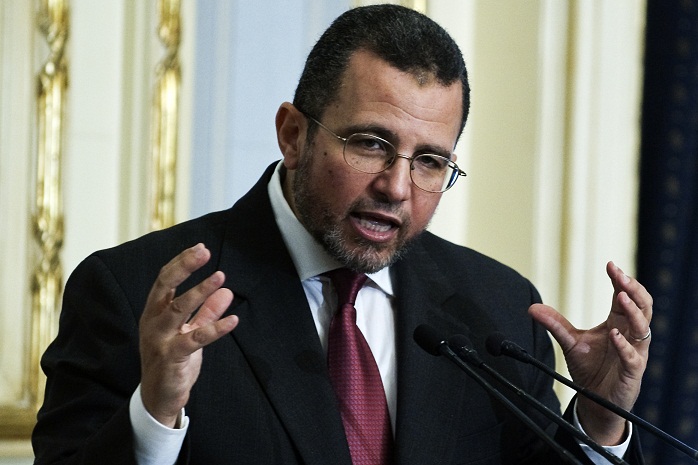CAIRO: The economic crisis may mean that protectionism is the order of the day for many nations, but outsourcing and immigration are nevertheless bound to rise, owing to advances in transport, communications and other technology, according to a World Bank report.
In the short term, the economic crisis will likely slow down job mobility, said Leila Zlaoui, the main author of the report, speaking at a press conference in Cairo on Sunday. But once markets start recovering, “the picture is going to change, and we will see an acceleration of labor and job mobility.
Disparities in global population growth are one reason for this. While the number of people in the world is expected to reach over 9 billion by 2050, the populations of many European countries are declining.
This will shift the numbers of workers needed and available in each country.
If current trends hold, for example, China, North America and Europe could collectively lose 216 million workers in the next four decades, the World Bank report said.
Under these circumstances, the European labor force will decline by almost 66 million workers, said Johannes Koettl, a labor market specialist for the World Bank.
Even if European countries are able to increase their retirement age and labor force participation to “unrealistic levels, they will only see an increase of 15 million workers. Domestic policy, Koettl said, can “to some extent prevent the shrinking of the European labor force, but they cannot prevent the aging of the European labor force.
The Middle East and North Africa (MENA) are, on the other hand, full of young and fast-growing populations, and may thus be able to fill some of the impending labor shortages in Europe and elsewhere.
But the labor force here still has deep issues, particularly with regard to women and education. “We can make two quick observations [about the MENA labor force]: Education is still lagging and female participation is still very low, Koettl said.
If policies in Europe and MENA stay the same, workers in this region will not be able to meet the needs of the European market. Matching the needs of both regions to one another will require “significant policy changes, Koettl said.
Additionally, MENA countries cannot ignore “job-receiving policies, despite being net exporters of labor, the report said.
“There are no labor receiving policies in our countries, said Zlaoui. “[This is] either because of refugee issues or because of economic needs – and sometimes both.
The skills gap is a persistent issue in Egypt. Despite a large labor force and high unemployment, many companies are unable to find appropriate workers to fill vacancies, and so, in some cases, they import labor and skills from abroad.
“This is not only the case for Egypt, it is the case for Tunisia, it is the case for Jordan, it is the case for Lebanon, Zlaoui said. “You have migration out of the country but you also have people coming for jobs into this country.
Why? Because the household sector or the entrepreneurial sector cannot find people with the right professional skills or the right life skills. she said.
Egypt, Zlaoui said, must participate alongside other countries in providing a “global pool of skills.
“The global pool of skills has to be in sub-Saharan Africa, it has to be in south Asia, it has to be in MENA, it has to be in Latin America. Because the consequences of not having a large enough pool of skills will be felt everywhere, she said.

